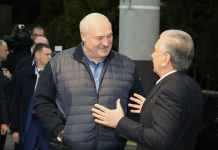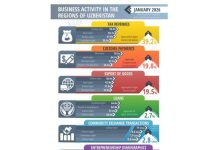TASHKENT, Nov 20 (UzA/APP/DNA):Central Asia is a unique region with a rich historical heritage and enormous potential. In recent years, its countries have demonstrated unprecedented consolidation of political will and a readiness to address long-standing challenges collectively.
The initiative of the President of Uzbekistan Shavkat Mirziyoyev to hold regular Consultative Meetings of the Heads of State of Central Asia, proposed at the 72nd session of the UN General Assembly in September 2017, became a turning point that fundamentally transformed the atmosphere of regional dialogue. Owing to the openness and mutual trust fostered among countries through this initiative, cooperation has reached a qualitatively new level, creating a solid foundation for the stability and prosperity of the entire region.
The Historical Process of Integration and Its Milestones
The first Consultative Meeting of the Heads of State of Central Asia was held on 15 March 2018 in Astana (now Nur-Sultan), marking a significant milestone. Before this, each state in the region focused primarily on its own sovereignty, while issues of security, borders, and infrastructure remained unresolved. At Uzbekistan’s initiative, for the first time, the leaders of all five countries gathered at one table to discuss shared challenges on an equal footing and develop joint approaches. This “new political atmosphere” made it possible to overcome hostility and mistrust: the settlement of the border issue between Uzbekistan and Kyrgyzstan, achieved for the first time in 26 years, marked a breakthrough.
Following the first meeting, the format continued to evolve: the second meeting took place in November 2019 in Tashkent, the third on 6 August 2021 at the Avaza resort complex in Turkmenistan, the fourth on 21 July 2022 in Cholpon-Ata (Kyrgyzstan), the fifth on 14-15 September 2023 in Dushanbe (Tajikistan), and the sixth on 9 August 2024 in Astana (Kazakhstan).
At each gathering, the leaders reaffirmed the principles of equality, trust, and pragmatism.
Uzbekistan’s Role as a Strategic Initiator
Thanks to its geographic position and the active diplomacy of President Shavkat Mirziyoyev, Uzbekistan has become a catalyst for renewing the regional agenda. Since 2016, the country’s policy built on the principles of good-neighborliness has yielded tangible results: significant border agreements have been signed, border regimes have been simplified, and transport links have been restored.

















